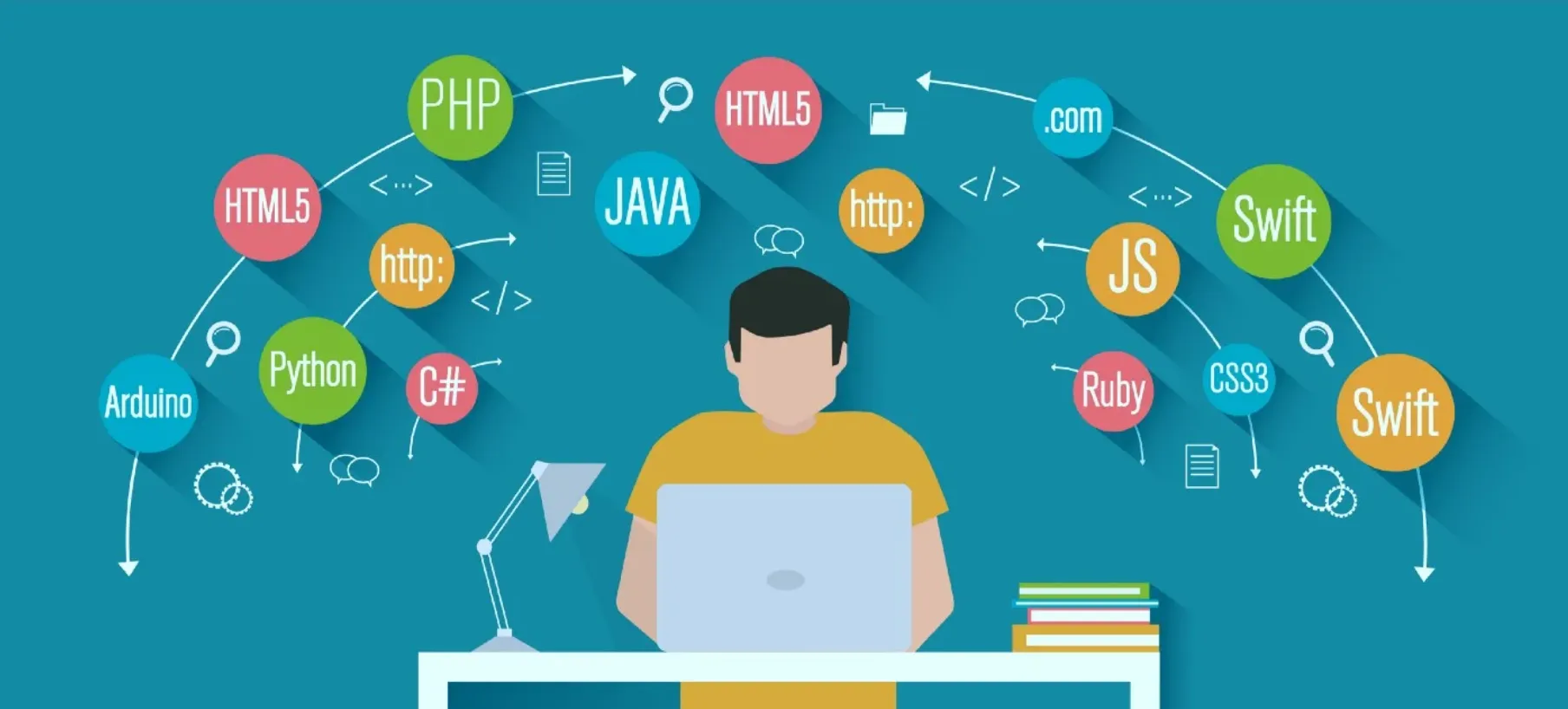In an era dominated by technology, learning new tech skills has become more crucial than ever. From boosting your career prospects to exploring creative passions, technology empowers individuals to achieve their goals and stay ahead in a competitive world. The best part? You don’t need to spend a fortune or attend a physical classroom to acquire these skills. With a plethora of free online resources, learning tech skills has never been easier or more accessible.
This article compiles 120+ tech skills you can learn online for free, grouped into categories that cater to various interests and career paths. Whether you’re interested in programming, web development, data science, digital marketing, or cutting-edge fields like artificial intelligence and robotics, this comprehensive guide will help you find the perfect skills to explore.
Each skill is accompanied by a brief explanation of its relevance and application, ensuring you understand its value. Whether you’re a beginner just starting your tech journey or an experienced professional looking to upskill, this guide provides the inspiration and direction you need. Let’s dive into the exciting world of tech and unlock your potential.

Programming and Coding Skills
Programming is the cornerstone of technology and a skill that unlocks countless career opportunities. Whether it’s developing mobile apps, designing websites, or analyzing data, programming lies at the heart of it all. Learning to code also sharpens your problem-solving and logical thinking abilities, making it a valuable skill across industries. With free tutorials, coding platforms, and interactive exercises available online, starting your programming journey has never been easier. Here are 10 essential programming skills you can learn today:
- Python
Python is one of the most beginner-friendly programming languages, making it an excellent starting point for anyone new to coding. It is widely used for data analysis, artificial intelligence, web development, and automation. Python’s simple syntax allows learners to focus on understanding programming concepts rather than getting bogged down by complex code. Its versatility and demand in industries like healthcare, finance, and tech make it a top skill to acquire. - JavaScript
JavaScript is the backbone of interactive websites. It enables features like dropdown menus, animations, and real-time updates on web pages. Mastering JavaScript opens doors to both frontend and backend web development, especially with popular frameworks like React and Node.js. As one of the most widely used programming languages, learning JavaScript ensures that your skills will remain relevant and in demand. - HTML
HyperText Markup Language (HTML) is the fundamental building block of the web. It provides the structure for web pages, allowing you to create elements like headings, paragraphs, images, and links. Learning HTML is essential for anyone interested in web development or blogging. Since every website begins with HTML, understanding its basics gives you a strong foundation for further web development skills. - CSS
Cascading Style Sheets (CSS) is what makes web pages visually appealing. While HTML structures a webpage, CSS defines its layout, colors, fonts, and overall design. If you’re interested in web design, mastering CSS is crucial for creating beautiful, user-friendly websites. With CSS, you can bring your creative vision to life and enhance the user experience of any project. - SQL
SQL (Structured Query Language) is a powerful tool for managing and analyzing data in relational databases. From small businesses to large enterprises, SQL is used to extract insights from data and make informed decisions. Learning SQL is especially valuable for data analysts, backend developers, and anyone working in data-driven roles. Its ability to handle large datasets makes it indispensable in today’s data-centric world. - Java
Java is a versatile programming language that powers mobile apps, enterprise software, and backend systems. It’s particularly known for its role in Android app development, making it a must-learn for aspiring mobile developers. Java’s scalability and reliability make it a favorite in industries like banking and telecommunications, where robust systems are essential. - C++
Known for its speed and performance, C++ is a popular choice for game development, systems programming, and software requiring high efficiency. Learning C++ provides a deeper understanding of programming fundamentals, such as memory management and object-oriented programming. It’s an ideal skill for those who want to build complex applications or dive into fields like robotics or embedded systems. - Ruby
Ruby is a dynamic, object-oriented language often associated with web development. Its most famous framework, Ruby on Rails, simplifies the process of building web applications. Ruby’s syntax is clean and readable, making it a great option for beginners who want to start coding quickly. Many startups use Ruby for its speed of development, ensuring that the skill remains in demand. - PHP
PHP is a server-side scripting language widely used to build dynamic and interactive websites. It powers platforms like WordPress and Facebook, making it a crucial skill for backend developers and content management system users. Learning PHP allows you to create web applications, manage databases, and enhance website functionality. - Swift
Swift is Apple’s programming language for iOS and macOS applications. It’s known for its simplicity and safety features, making it easier to learn compared to older languages like Objective-C. If you’re interested in mobile development for Apple devices, mastering Swift is an excellent choice. With the growing demand for iOS apps, this skill can lead to lucrative opportunities.

Web Development Skills
Web development is one of the most in-demand tech skills in today’s job market. As businesses and individuals increasingly rely on online platforms, the need for skilled web developers continues to grow. Whether you want to create personal projects, freelance, or build a career in tech, web development is a versatile skill that offers endless possibilities. Free resources online, such as interactive tutorials and coding challenges, make learning web development accessible to everyone. Here are 10 essential web development skills you can learn:
- Responsive Design
Responsive design ensures that websites look great and function seamlessly across devices, from desktops to smartphones. It involves using CSS frameworks like Bootstrap or writing media queries to adjust layouts dynamically. Learning responsive design is crucial for creating user-friendly websites that cater to today’s mobile-first audience. - Frontend Development
Frontend development focuses on building the visible parts of a website, including layouts, menus, and interactive elements. Skills like HTML, CSS, and JavaScript are essential for this role. By mastering frontend development, you can create visually appealing and highly functional web experiences. - Backend Development
Backend development involves creating the server-side logic that powers websites and applications. Skills like Node.js, PHP, and Python are commonly used in backend programming. This skill enables you to build databases, manage servers, and ensure smooth functionality for web applications. - Web Frameworks
Frameworks like React, Angular, and Vue.js simplify the process of building dynamic web applications. These tools help developers write efficient code while offering powerful features for frontend and backend development. Learning a popular framework boosts your ability to create robust and scalable web applications. - APIs (Application Programming Interfaces)
APIs allow different software systems to communicate and share data. By learning how to work with APIs, you can integrate third-party services like payment gateways, social media platforms, or weather data into your web projects. This skill is vital for creating modern, connected applications. - Version Control (Git)
Version control tools like Git help developers manage changes to code and collaborate effectively on projects. Platforms like GitHub and GitLab are widely used for code sharing and teamwork. Learning Git is essential for anyone serious about web development or software engineering. - Progressive Web Apps (PWAs)
PWAs are web applications that offer features similar to native apps, such as offline functionality and push notifications. They provide users with a seamless experience while being accessible via web browsers. Mastering PWA development is a valuable skill for creating modern and engaging applications. - Web Accessibility
Web accessibility ensures that websites are usable by people with disabilities. This includes designing for screen readers, creating keyboard-friendly navigation, and providing alternative text for images. Learning accessibility principles helps you create inclusive digital experiences and comply with legal standards. - Website Optimization
Optimizing websites for speed and performance is crucial in today’s fast-paced online environment. Techniques like minimizing JavaScript, compressing images, and leveraging caching can significantly enhance user experience. Mastering optimization skills makes you a better developer and improves website SEO. - CMS Platforms
Content Management Systems (CMS) like WordPress, Joomla, and Drupal allow you to build and manage websites without extensive coding. By learning to use CMS platforms, you can create professional websites for clients or personal projects efficiently. This skill is particularly useful for freelancers and small business owners.

Data and Analytics Skills
Data has become one of the most valuable resources in the modern world, driving decision-making and innovation across industries. From tracking website performance to analyzing customer behavior, data analytics helps businesses and individuals make informed decisions. The following 10 data-related skills will help you harness the power of information and unlock new opportunities:
- Data Visualization
Data visualization involves presenting data in charts, graphs, and dashboards to make complex information easier to understand. Tools like Tableau, Power BI, and Google Data Studio are commonly used in this field. Learning data visualization allows you to communicate insights effectively. - Data Cleaning
Raw data often contains errors, duplicates, and inconsistencies that need to be cleaned before analysis. Tools like Excel, Python, and R can help automate data cleaning processes. This skill ensures that your data is accurate and reliable for decision-making. - Google Analytics
Google Analytics is a free tool that helps track website traffic, user behavior, and marketing performance. Learning to use it enables you to optimize websites and measure the success of digital campaigns. - Big Data Analysis
Big data analysis involves working with massive datasets to uncover trends and insights. Tools like Apache Hadoop and Spark are widely used in this field. Learning big data skills opens doors to careers in industries like finance, healthcare, and technology. - Excel for Data Analysis
Excel remains a powerful tool for analyzing and visualizing data. Advanced features like PivotTables, VLOOKUP, and macros allow you to handle complex datasets efficiently. Learning Excel is a fundamental step for anyone working with data. - SQL for Data Queries
SQL is essential for querying and managing data stored in relational databases. By learning SQL, you can extract valuable insights from data and generate reports for decision-making. - Statistical Analysis
Statistical analysis involves interpreting data to uncover patterns and relationships. Tools like R, Python, and SPSS are commonly used for this purpose. Mastering statistics is crucial for data-driven industries like research, marketing, and finance. - Machine Learning Basics
Machine learning enables systems to learn and make predictions from data. Platforms like TensorFlow and Scikit-learn provide free resources for beginners. This skill is in high demand in fields like AI, automation, and predictive analytics. - Data Mining
Data mining involves extracting meaningful information from large datasets. Techniques like clustering, classification, and association rules are commonly used. Learning data mining skills equips you to uncover hidden patterns and trends in data. - Python for Data Science
Python is a go-to language for data science due to its versatility and extensive libraries like Pandas and NumPy. Learning Python for data analysis allows you to manipulate datasets and perform complex computations with ease.

Creative Tech Skills
Technology isn’t just about coding and analytics—it’s also a powerful tool for creativity. From graphic design to video editing, tech skills can help you express yourself and create professional-quality content. With the growing demand for digital content in industries like marketing, entertainment, and education, mastering creative tech skills can unlock exciting opportunities. Here are 10 creative tech skills you can learn online for free:
- Graphic Design
Graphic design involves creating visual content like logos, posters, and social media graphics. Tools like Canva, GIMP, and Figma provide user-friendly platforms for beginners. By learning graphic design, you can create eye-catching visuals that communicate your ideas effectively. - Video Editing
Video content is king in today’s digital landscape. Tools like DaVinci Resolve, HitFilm Express, and iMovie make video editing accessible to beginners. Learning this skill allows you to produce professional-quality videos for YouTube, social media, or personal projects. - Photo Editing
Photo editing skills help you enhance and retouch images for creative or professional use. Free tools like Adobe Photoshop Express, GIMP, and Snapseed offer robust features for beginners. Mastering photo editing can elevate your visual storytelling and make your images stand out. - UX/UI Design
User Experience (UX) and User Interface (UI) design focus on creating user-friendly and aesthetically pleasing digital products. Tools like Figma and Adobe XD are widely used in this field. Learning UX/UI design is valuable for anyone interested in web or app development. - Digital Illustration
Digital illustration involves creating artwork using tools like Procreate, Krita, or Inkscape. This skill is perfect for artists looking to transition to digital media or individuals interested in creating custom visuals. - Animation
Animation brings graphics and stories to life. Tools like Blender (for 3D animation) and Animaker (for 2D animation) are excellent resources for beginners. Learning animation allows you to create engaging content for entertainment, education, or marketing. - Web Design
Web design combines visual design skills with technical know-how to create appealing and functional websites. Platforms like Canva, Wix, and WordPress make it easy to get started. Learning web design is essential for anyone interested in digital marketing or freelancing. - Presentation Design
Strong presentation design skills help you create visually compelling slideshows for work, school, or personal projects. Tools like Canva, Google Slides, and Prezi provide templates and features to enhance your presentations. - Audio Editing
Audio editing is crucial for creating podcasts, music, or videos with professional-quality sound. Free tools like Audacity and GarageBand make it easy to learn the basics. This skill is especially useful for content creators and musicians. - Content Creation Tools
Content creation encompasses a variety of skills, including writing, video production, and social media management. Tools like Adobe Spark, Canva, and Kapwing help you create engaging content for digital platforms. Mastering these tools is valuable for building a personal brand or boosting marketing efforts.

Cybersecurity Skills
In an increasingly digital world, cybersecurity skills are more important than ever. Whether you’re looking to protect your personal data or explore a career in IT security, learning about cybersecurity can empower you to stay safe online. Cybersecurity professionals are in high demand, and these skills can open doors to a lucrative and impactful career. Here are 10 cybersecurity skills you can learn online:
- Ethical Hacking
Ethical hacking involves finding and fixing security vulnerabilities to protect systems from cyberattacks. Platforms like Cybrary and Hack The Box offer free resources to learn this in-demand skill. Ethical hacking is a key part of cybersecurity jobs like penetration testing. - Network Security
Network security focuses on protecting data as it moves through networks. Learning concepts like firewalls, VPNs, and intrusion detection systems helps you secure communication channels. Free courses on platforms like Cisco Networking Academy are great starting points. - Data Encryption
Encryption ensures that sensitive data remains secure and inaccessible to unauthorized users. Tools like VeraCrypt and tutorials on encryption basics provide an entry point into this crucial skill. - Cyber Threat Analysis
Threat analysis involves identifying, assessing, and mitigating potential security risks. By learning this skill, you can help organizations stay ahead of cybercriminals. Many free courses on platforms like Coursera and Udemy cover the fundamentals. - Incident Response
Incident response is the process of managing and mitigating cybersecurity breaches. It’s a critical skill for IT professionals tasked with protecting an organization’s data and reputation. - Malware Analysis
Malware analysis involves studying malicious software to understand its behavior and prevent future attacks. Free tools like Remnux and online labs provide hands-on experience. - Risk Management
Risk management helps organizations identify and minimize potential security threats. This skill is vital for anyone interested in leadership roles within cybersecurity. - Security Compliance
Understanding compliance frameworks like GDPR, HIPAA, and ISO 27001 is crucial for ensuring legal and ethical data protection. Many free resources online cover these essential guidelines. - Cloud Security
As businesses move to cloud platforms, securing cloud environments becomes a top priority. Skills like configuring AWS, Azure, or Google Cloud securely are in high demand. Free labs and tutorials on cloud provider websites are excellent learning tools. - Cybersecurity Awareness
Cybersecurity awareness focuses on educating individuals and organizations about online threats like phishing, social engineering, and ransomware. This skill is foundational for maintaining safe digital habits.

Digital Marketing Skills
Digital marketing is one of the most versatile and in-demand skill sets in today’s job market. With businesses increasingly relying on digital platforms to reach their audience, mastering marketing techniques online can make you a valuable asset. These skills are perfect for entrepreneurs, freelancers, and anyone interested in building a brand. The best part? Many digital marketing tools and courses are free, making it easier than ever to learn and apply these skills. Here are 10 essential digital marketing skills you can explore:
- Search Engine Optimization (SEO)
SEO is the process of optimizing websites to rank higher on search engines like Google. By learning SEO, you can drive organic traffic to websites and improve their visibility. Free tools like Google Search Console and courses on platforms like Coursera or HubSpot Academy provide excellent starting points. - Content Marketing
Content marketing involves creating valuable and engaging content to attract and retain an audience. Learn how to write blogs, create infographics, or design videos that align with business goals. Free courses on platforms like Copyblogger and SEMrush Academy make it easy to master this skill. - Social Media Marketing
Social media marketing focuses on promoting products, services, or personal brands on platforms like Instagram, Facebook, and LinkedIn. Learn to plan campaigns, analyze metrics, and grow a following using free tutorials from sites like Hootsuite Academy. - Email Marketing
Email marketing is one of the most cost-effective ways to connect with audiences. Tools like Mailchimp and tutorials from HubSpot Academy teach you how to build email campaigns, track engagement, and boost conversions. - Pay-Per-Click (PPC) Advertising
PPC involves running paid ad campaigns on platforms like Google Ads or social media. By mastering PPC, you can create targeted advertisements and drive measurable results. Free tools like Google Ads Academy offer valuable insights. - Google Analytics
Google Analytics helps you track website traffic, user behavior, and marketing campaign performance. It’s an essential tool for any digital marketer, and Google provides free courses to help you get certified. - Affiliate Marketing
Affiliate marketing allows you to earn commissions by promoting products or services from other companies. Learn how to create affiliate partnerships and use platforms like Amazon Associates to get started. - Conversion Rate Optimization (CRO)
CRO focuses on improving the percentage of users who take desired actions on a website, such as signing up for a newsletter or making a purchase. Free resources on platforms like Unbounce or Neil Patel’s blog teach you this valuable skill. - Influencer Marketing
Influencer marketing leverages the popularity of social media personalities to promote products and brands. Free courses on sites like Skillshare teach you how to create partnerships with influencers. - Video Marketing
Video marketing involves creating engaging video content for platforms like YouTube, TikTok, and Instagram. Tools like Canva and free tutorials from platforms like Vidyard help you create compelling video campaigns.

Artificial Intelligence and Machine Learning Skills
Artificial Intelligence (AI) and Machine Learning (ML) are transforming industries, from healthcare to entertainment. These technologies enable computers to learn and make decisions without being explicitly programmed, and they’re rapidly shaping the future of work. With free resources and hands-on tools, you can start exploring AI and ML, even as a beginner. Here are 10 essential skills in this exciting field:
- Machine Learning Basics
Learn the fundamentals of machine learning, including supervised and unsupervised learning. Free platforms like Google’s Machine Learning Crash Course offer beginner-friendly tutorials. - Deep Learning
Deep learning focuses on neural networks to solve complex problems like image recognition and natural language processing. Tools like TensorFlow and Keras are excellent for hands-on learning, and free courses on platforms like Coursera help you get started. - Natural Language Processing (NLP)
NLP enables machines to understand and interpret human language. Learn how chatbots, voice assistants, and sentiment analysis tools work using free resources from Hugging Face or Fast.ai. - Computer Vision
Computer vision involves enabling computers to interpret and analyze visual data like images and videos. Free tools like OpenCV and online courses teach you how to apply this skill to real-world applications. - Reinforcement Learning
Reinforcement learning is a type of machine learning where agents learn by interacting with their environment. Platforms like OpenAI and free courses from Udacity provide hands-on tutorials. - AI Ethics
Learn about the ethical implications of artificial intelligence, including privacy, bias, and accountability. Free resources from AI4ALL or edX help you understand the responsibilities of working in this field. - Data Preprocessing
Data preprocessing involves cleaning and preparing raw data for machine learning models. Tools like Python’s Pandas and NumPy libraries are widely used, and free tutorials online can guide you through the process. - Predictive Analytics
Predictive analytics uses historical data to forecast future outcomes. Learn how to build predictive models using tools like Excel, Python, or R with free tutorials on platforms like DataCamp. - AI Programming Languages
Programming languages like Python, R, and Julia are essential for developing AI applications. Free courses on Codecademy and edX provide an excellent introduction to these languages. - Building AI Projects
Apply your knowledge by building real-world AI projects, such as recommendation systems or predictive models. Platforms like Kaggle offer free datasets and challenges to help you practice your skills.

Cloud Computing Skills
Cloud computing has revolutionized the way businesses operate by providing scalable, on-demand resources over the internet. Whether you’re interested in managing cloud infrastructure, developing applications, or exploring data storage solutions, cloud computing skills are highly sought after. With free resources from major providers like AWS, Azure, and Google Cloud, learning these skills is more accessible than ever. Here are 10 essential cloud computing skills you can master:
- Cloud Fundamentals
Understanding the basics of cloud computing is the first step. Learn about key concepts like virtualization, scalability, and deployment models (IaaS, PaaS, SaaS) through free courses offered by providers like AWS and Google Cloud. - AWS Basics
Amazon Web Services (AWS) is the most popular cloud platform. Learn how to navigate AWS, use its services like S3 for storage, and EC2 for computing. Free AWS Academy resources or introductory courses on AWS Skill Builder are great starting points. - Microsoft Azure Basics
Microsoft Azure is widely used in enterprise environments. Gain knowledge of its key services like Azure Virtual Machines and Azure Functions through free courses on Microsoft Learn. - Google Cloud Platform (GCP)
Google Cloud offers powerful tools for data storage, AI, and app development. Learn to deploy virtual machines, manage databases, and use AI tools with free GCP tutorials. - Cloud Storage Management
Master how to store, access, and manage data in the cloud. Services like AWS S3, Google Cloud Storage, and Azure Blob Storage provide free tiers to help you practice and learn. - Serverless Computing
Serverless architecture allows developers to build and run applications without managing servers. Platforms like AWS Lambda, Google Cloud Functions, and Azure Functions offer free resources to explore this efficient development model. - Kubernetes and Containerization
Learn Kubernetes, the leading platform for managing containerized applications, and tools like Docker. Free resources on Kubernetes Academy or Docker’s official website provide hands-on learning opportunities. - Cloud Security
Cloud security focuses on protecting data and applications hosted in the cloud. Learn about identity management, encryption, and compliance using free courses from AWS, Azure, and Google Cloud. - Multi-Cloud Management
Many organizations use multiple cloud providers. Learn how to manage workloads across different platforms and optimize resources using free tutorials from HashiCorp or online guides. - DevOps in the Cloud
DevOps integrates development and operations to streamline application delivery. Master tools like Jenkins, Terraform, and AWS DevOps practices with free courses and labs from cloud providers.

Robotics and IoT Skills
Robotics and the Internet of Things (IoT) are transforming industries by automating tasks and connecting devices to create smarter systems. These fields offer exciting opportunities in areas like manufacturing, home automation, and healthcare. With free online resources, you can start learning robotics and IoT concepts even without a background in engineering. Here are 10 essential skills to explore:
- Introduction to Robotics
Learn the basics of robotics, including sensors, actuators, and programming. Free courses on platforms like edX or Robotics Academy provide a solid foundation. - Arduino Programming
Arduino is a popular platform for building robots and IoT devices. Learn to code Arduino boards and create projects like automated lighting or simple robots with free tutorials on the Arduino website. - Raspberry Pi Basics
Raspberry Pi is a small computer used in IoT and robotics projects. Master how to set up Raspberry Pi and program it for tasks like home automation with free guides online. - IoT Fundamentals
Understand how IoT connects devices to collect and exchange data. Free courses on Cisco Networking Academy teach IoT basics and real-world applications. - Robot Operating System (ROS)
ROS is a flexible framework for programming robots. Learn the basics of ROS through free resources like ROS Tutorials or The Construct’s online courses. - IoT Security
Securing IoT devices is crucial to prevent cyber threats. Learn about encryption, device authentication, and secure communication protocols through free cybersecurity courses on IoT. - Sensor Integration
Sensors are the backbone of robotics and IoT. Learn how to integrate and program sensors for temperature, motion, or light detection using free tutorials. - Home Automation
Build IoT systems to control lights, appliances, and security systems. Platforms like Blynk and tutorials on YouTube offer free resources for creating smart homes. - 3D Printing for Robotics
Learn to design and print parts for robots using 3D printers. Free design software like Tinkercad and Fusion 360 can help you get started. - Industrial IoT (IIoT)
IIoT focuses on connecting machines and devices in industries like manufacturing and energy. Learn how sensors and networks optimize processes through free IIoT courses online.

Tech Skills for Beginners
Getting started in technology can feel intimidating, but there are many beginner-friendly skills that lay the groundwork for future learning. These foundational skills require no prior experience and can be learned through free online resources, making them perfect for anyone just stepping into the tech world. Whether you’re looking to develop basic digital literacy or explore entry-level coding, these skills will help you build a strong tech foundation.
- Basic Computer Skills
Learn essential computer operations like managing files, using productivity tools (Word, Excel, PowerPoint), and navigating operating systems. Free tutorials on platforms like GCFGlobal are great for beginners. - Typing and Keyboard Shortcuts
Mastering typing and shortcuts improves efficiency in using computers. Tools like TypingClub and free guides on keyboard shortcuts make learning easy and fun. - Internet Basics
Understand how the internet works, including search engines, email usage, and online safety practices. Free resources on Google’s Digital Garage can help you get started. - Microsoft Office Suite
Microsoft Word, Excel, and PowerPoint are essential tools for most jobs. Free tutorials on Microsoft’s website or YouTube offer step-by-step guides for beginners. - Digital Communication
Learn to use communication tools like Zoom, Slack, and Microsoft Teams. Free tutorials on these platforms teach you how to collaborate effectively online. - Basic Coding Concepts
Start learning coding logic without diving into a specific language. Free platforms like Scratch or Code.org are perfect for beginners to understand programming basics. - Introduction to Cloud Storage
Explore how to store and manage files using free cloud services like Google Drive, Dropbox, and OneDrive. These tools are essential for both personal and professional organizations. - Online Research Skills
Learn to use advanced search techniques and evaluate credible sources. Free resources like Google Search Tips or tutorials from educational websites can sharpen your research abilities. - Digital Citizenship
Understand the ethics and responsibilities of using technology, including online etiquette, copyright laws, and protecting your digital footprint. Free courses like Be Internet Awesome teach these principles. - Password Management
Learn how to create strong passwords and use password managers like LastPass or Bitwarden to keep your accounts secure. Free guides on cybersecurity websites make this skill easy to acquire.

Skills for IT Support and Networking
The IT support and networking field is essential for maintaining the technology that powers businesses and personal systems. These skills focus on troubleshooting, hardware, and managing networks, making them valuable for anyone interested in a hands-on role in tech. Many free courses and virtual labs allow you to gain experience in IT and networking without prior knowledge. Here are 10 skills to explore:
- Hardware Troubleshooting
Learn how to diagnose and fix hardware issues in computers and peripherals. Free tutorials on platforms like Udemy and CompTIA’s website provide step-by-step guides. - Operating System Basics
Master the fundamentals of Windows, macOS, and Linux operating systems. Free resources like Linux Foundation courses or Microsoft Learn are excellent starting points. - Network Fundamentals
Understand how networks work, including concepts like IP addresses, routers, and firewalls. Free courses on Cisco Networking Academy cover the basics. - Installing and Configuring Software
Learn to install, update, and troubleshoot common software programs. YouTube tutorials and online guides provide practical knowledge for beginners. - Network Troubleshooting
Develop skills to identify and resolve common network issues, such as slow connections or misconfigured devices. Free labs and simulations from Cisco Packet Tracer offer hands-on practice. - Command Line Basics
Learn to use command-line interfaces like Windows Command Prompt and Linux Terminal to perform tasks more efficiently. Free resources on Codecademy or tutorials on YouTube are great for beginners. - Virtualization Basics
Explore tools like VMware and VirtualBox to create virtual machines for testing and development. Free resources from VMware’s Hands-On Labs teach the basics of virtualization. - IT Ticketing Systems
Learn how IT professionals track and resolve support requests using tools like Jira or ServiceNow. Free training videos from these platforms explain how to manage IT workflows. - Printer and Peripheral Setup
Master the basics of setting up printers, scanners, and other peripherals. Free guides from manufacturers’ websites or YouTube tutorials can help you get started. - Basic Cybersecurity Practices for IT Support
Learn to identify phishing scams, update antivirus software, and educate users on safe practices. Free cybersecurity awareness courses like those on Cybrary are ideal for beginners.

Skills for Emerging Technologies
Emerging technologies like blockchain, quantum computing, and augmented reality (AR) are shaping the future of innovation. These cutting-edge skills may seem advanced, but free online resources allow beginners to start exploring them. Here are 10 tech skills that will prepare you for the technologies of tomorrow:
- Blockchain Basics
Learn how blockchain technology works, including its applications in cryptocurrency, smart contracts, and supply chain management. Free courses on platforms like IBM Skills Network and Coinbase provide an excellent introduction. - Cryptocurrency Trading and Wallets
Understand the basics of cryptocurrency, including how to trade and manage digital wallets. Free tutorials from Binance Academy or Coinbase help you get started. - Augmented Reality (AR)
Explore how AR overlays digital information onto the physical world. Free tools like Spark AR Studio and tutorials on Unity’s website make it easy to create your first AR project. - Virtual Reality (VR)
Learn to build immersive virtual environments using platforms like Unreal Engine or Unity. Free tutorials from Oculus and Unity’s Learn Hub are beginner-friendly. - Quantum Computing Basics
Quantum computing focuses on solving complex problems using quantum bits (qubits). Platforms like IBM Quantum Experience offer free tools and courses for beginners. - Digital Twins
Digital twins are virtual replicas of physical objects or systems. Learn the basics of this technology with free courses on platforms like Siemens or YouTube tutorials. - 3D Modeling
Create 3D objects using tools like Blender, Tinkercad, or SketchUp. Free resources from Blender’s website or beginner tutorials on YouTube are a great place to start. - Voice Recognition Systems
Learn to develop voice-activated applications using tools like Amazon Alexa or Google Assistant SDK. Free labs and courses from these platforms offer step-by-step instructions. - Edge Computing
Explore how edge computing brings data processing closer to the source. Free resources from Microsoft Azure or IBM Edge teach the fundamentals of this innovative field. - Digital Ethics
Understand the ethical implications of emerging technologies, including privacy, AI bias, and security concerns. Free courses from edX or platforms like AI4ALL address these critical topics.

Advanced Data Science and AI Skills
Data science and artificial intelligence are constantly evolving, with new tools and techniques emerging every year. These advanced skills can help you stay ahead in a competitive field:
- Time Series Analysis
Learn how to analyze data that changes over time, such as stock prices or weather patterns. Free Python libraries like statsmodels and online tutorials help you master this technique. - Advanced Neural Networks
Explore concepts like recurrent neural networks (RNNs) and convolutional neural networks (CNNs) for cutting-edge AI applications. Free courses on DeepLearning.ai provide hands-on training. - AI Model Deployment
Learn to deploy machine learning models in production environments using tools like Flask, FastAPI, or TensorFlow Serving. Free resources on GitHub and Medium offer step-by-step guides. - Recommender Systems
Build systems that provide personalized recommendations, like those used by Netflix or Amazon. Learn techniques like collaborative filtering with free tutorials on Coursera or Kaggle. - Data Engineering
Data engineers design pipelines to prepare data for analysis. Tools like Apache Kafka, Spark, and Airflow are essential, and free courses on Udacity cover these in detail. - Explainable AI (XAI)
XAI focuses on making AI decisions more transparent and understandable. Free resources on platforms like IBM and Microsoft Azure introduce this critical skill.

The journey to mastering technology is filled with endless possibilities, and the best part is, many of these opportunities are available for free. From foundational skills like coding and web development to advanced concepts like artificial intelligence and cybersecurity, the tech world offers something for everyone, regardless of your experience level.
This guide to 120+ tech skills has provided a roadmap for exploring areas that align with your passions and goals. Whether you’re pursuing a tech career, enhancing your current skill set, or simply satisfying your curiosity, these skills can empower you to thrive in a digital-first world.
The beauty of online learning lies in its flexibility—learn at your own pace, from the comfort of your home, and choose the topics that resonate with you most. With so many free platforms, courses, and tools at your fingertips, there’s never been a better time to invest in your growth.










